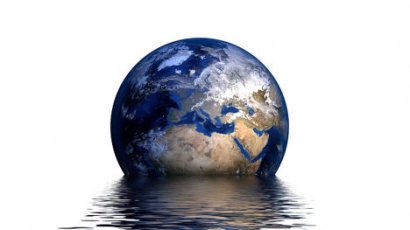
One of these popular methods for reducing emissions is called carbon capture and storage (CCS). There are more than 40 large-scale CCS facilities around the world, with more under construction. That looks like good news for the environment, but a recent study found CCS has some unexpected consequences.
CCS the process of capturing, storing and transferring CO2 away from a facility, so it doesn't pollute the air. Factories and energy plants use it to reduce their infamously high levels of emissions.
First, these facilities use a variety of machinery to separate CO2 from the rest of the gasses. They then transport it somewhere else, either by pipeline or shipping canisters of it. After moving CO2 away from the facility, companies can either store it underground or use it in other processes.
As far as CO2 removal goes, CCS is highly effective. It can capture more than 90% of CO2 emissions from the plants that use it. That's an impressive number, but it turns out CCS can be detrimental to local water supplies.
Researchers at the U.C. Berkeley College of Chemistry found that CCS contributes to water scarcity in some areas. Their study, published on May 4, showed how 43% of coal-fired power plants (CFPPs) experience a water shortage every year. Adding CCS systems to these plants could make this situation worse.
Power plants already use a lot of water in their cooling process. Using CCS means more machinery, which means they'd require even more water for cooling. This process could both increase water scarcity and harm the environment through wastewater pollution.
The world doesn't collect or treat more than 80% of wastewater, according to some studies. If CFPPs using CCS follow this trend, they'd create an enormous amount of wastewater, polluting the area. Even if they do treat it, though, they're still using valuable resources that may be scarce.
Thankfully, these downsides don't mean that we should abandon CCS altogether. The study found that introducing CCS won't create shortages in areas that don't already have a water scarcity problem. The issue lies with the 43% of CFPPs that do experience these shortages.
CCS's contribution to water scarcity is relatively small. For CFPPs that already struggle with the issue, though, it could be the final nail in the coffin. Does that mean these facilities can't use CCS? Not exactly.
The U.C. Berkeley researchers noted that newer hi-tech CCS systems use less water. Most CCS projects use absorption to collect CO2, but ones that use adsorption don't require nearly as much water. CFPPs could also consider different cooling solutions if they're in a drier area.
The path to sustainability is hardly ever straightforward, and CCS is a prime example. It can be an excellent way to reduce the harmful emissions from factories running on fossil fuels. At the same time, in almost half of CFPPs, it can take water away from an already arid environment.
Facilities that want to introduce CCS to their operations have to do so carefully. Without state-of-the-art equipment or alternative cooling methods, they could hurt the environment more than they help it. Thoughtful, well-rounded CCS adoption, on the other hand, may be their best bet at going green.

